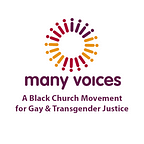Can the Black Church handle the answer?
18 A certain ruler asked him, “Good Teacher, what must I do to inherit eternal life?” 19 Jesus said to him, “Why do you call me good? No one is good but God alone. 20 You know the commandments: ‘You shall not commit adultery; You shall not murder; You shall not steal; You shall not bear false witness; Honor your father and mother.’” 21 He replied, “I have kept all these since my youth.” 22 When Jesus heard this, he said to him, “There is still one thing lacking. Sell all that you own and distribute the money[a] to the poor, and you will have treasure in heaven; then come, follow me.” 23 But when he heard this, he became sad; for he was very rich. Luke 18:18–30 (NRSV)
I have discovered in “mainstream black church” that questions and God do not go hand in hand. It has been the culture of many of our black religious institutions to take what comes across the pulpit as law and fact; and if you dare question what is being said, then you are somehow challenging God. Let us never question what some would view as the inerrant word of God because if it was written then it must be right. Christian fundamentalism beginning in the late 19th and 20th century as a response to theological liberalism and cultural modernism has been a stronghold in our mainstream churches. They have a literal interpretation of the Bible pertaining to those scriptures that suit them and allow them to oppress others.
Therefore, the story of the rich young ruler in the Gospel according to Matthew is somehow very radical in its theological implications. It somehow expresses to us that God is not afraid of our questions. Furthermore, God seems to take delight in our spiritual curiosity. Curiosity may have killed the cat, but it will save the Church. Some of the greatest discoveries happened in the world because of a question. Someone had to move beyond the status quo. Someone had to believe there was more and make a decision to question institutions, systems, doctrines, themselves, and God.
The text introduces a man to us that I believe we all, at some point or time, can relate to. He is a religious man but finds himself seeking a greater truth. We know from the scriptures that he understands the scriptures and is striving to live a righteous life, but he is bold enough to ask an identity-changing question. The response that Jesus gives him is not the one he wanted. By giving up his position, who would he become? He is identified in the scripture by what he has but the response and the truth he receives will cause him to embrace a new identity. We do not know what his decision was but he was left with two options; he could either embrace a new identity or continue in his old life not embracing a greater truth.
This is where we find the church forced to ask questions about the spiritual legitimacy of those within the LGBTQIA community. The mainstream black church is just as fearful as the rich young ruler. What will our identity be if we embrace, affirm, and include those within the LBGTQIA community? What will that say about our doctrinal beliefs?
With all of the work that is continuing to be done around proper and contextual interpretations of scripture, the Church can no longer ignore a God who is yet speaking. We must embrace the answer of a radically-inclusive God. We can no longer allow the Church to run from the answers God is giving to hard questions because it is challenged by the answer. God is not afraid of our questions, but the mainstream black church has to stop being afraid of God’s answers.
Pastor Jabari A. Douglas is a church planter at heart. His desire to hear the still speaking God and create places of worship where people can meet this God has been the foundation of his ministry.
He is currently the founder of the Love Campaign an outreach ministry providing spaces for people to experience the unconditional radical love of Jesus Christ and God the Creator. A proud alum of the University of North Carolina at Chapel Hill where he received his B.A. in Political Science and Howard University School of Divinity where he completed his Mater of Arts and Religious studies degree.
He is currently in the process of becoming a United Church of Christ pastor.
Pastor Douglas considers one of his greatest accomplishments and responsibilities is being the father of Nigel and Noah Douglas.
